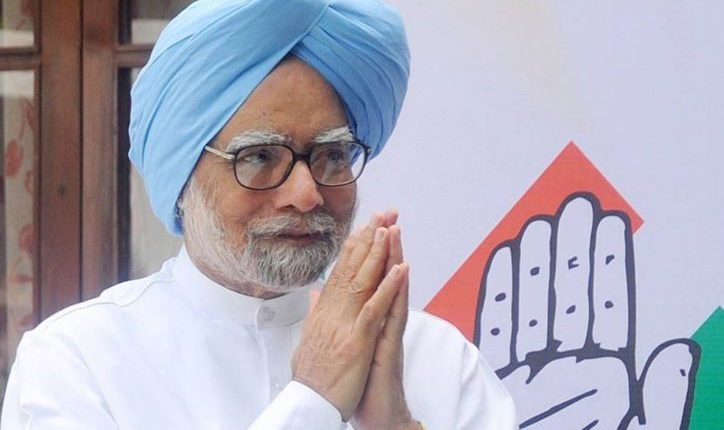Nation Mourns: Former PM Manmohan Singh, Architect of Economic Reforms, Passes Away at 92
Tributes Pour In as India Loses Visionary Leader and Statesman Manmohan Singh
NEW DELHI/JAMMU, Dec 26: Former Prime Minister Dr. Manmohan Singh, a towering figure in Indian politics and the architect of the country’s economic reforms, passed away at the age of 92 in New Delhi on Thursday night. His demise marks the end of an era, leaving a void in the nation’s political and economic landscape. Dr. Singh breathed his last at the All India Institute of Medical Sciences (AIIMS), where he had been admitted in critical condition. The hospital bulletin revealed that he suffered a sudden loss of consciousness due to age-related complications and, despite resuscitation efforts, was declared dead at 9:51 PM.
Dr. Singh’s passing has elicited an outpouring of grief and tributes from across the nation. President Droupadi Murmu expressed profound sorrow, hailing him as “one of the greatest sons of Bharat” whose contributions to economic reforms and public service would remain etched in history. Prime Minister Narendra Modi, paying homage to his predecessor, called him a distinguished leader whose wisdom, humility, and economic vision transformed India. Modi fondly recalled their interactions during his tenure as Gujarat Chief Minister, highlighting Dr. Singh’s insightful deliberations and people-centric approach to governance.
Born in what is now the Jhelum district in Pakistan, Dr. Singh’s journey from humble beginnings to becoming India’s Prime Minister is a testament to his resilience and intellect. He earned global recognition as a visionary economist and statesman. His tenure as Finance Minister in the early 1990s, under Prime Minister P.V. Narasimha Rao, saw the introduction of groundbreaking economic reforms. These reforms steered India away from the brink of bankruptcy, ushering in an era of liberalization that transformed the country’s economic trajectory.
As Prime Minister for two consecutive terms from 2004 to 2014, Dr. Singh championed policies aimed at inclusive growth and poverty alleviation. He spearheaded initiatives such as the Mahatma Gandhi National Rural Employment Guarantee Act (MGNREGA), which provided a safety net for millions of rural households, and the Right to Information Act, which empowered citizens and bolstered transparency in governance. Despite leading a coalition government marred by allegations of corruption, Dr. Singh’s personal integrity and humility remained unquestionable.
Dr. Singh’s contributions extended beyond economic policies. During his tenure, he prioritized infrastructure development and scientific research. His deep concern for Jammu and Kashmir was evident in his efforts to improve connectivity in the region, including extending railway lines to the Kashmir Valley, which opened up new economic opportunities and fostered integration.
Congress leaders Sonia Gandhi and Priyanka Gandhi Vadra were among the first to arrive at AIIMS upon hearing the news of his hospitalization, underscoring the deep respect and admiration he commanded within his party. The Congress Working Committee meeting in Belagavi, Karnataka, was adjourned as senior leaders, including Mallikarjun Kharge and Rahul Gandhi, rushed to Delhi to pay their respects.
The tributes poured in from various quarters reflect Dr. Singh’s multifaceted legacy. Lok Sabha Speaker Om Birla remembered him as a renowned economist, efficient administrator, and enlightened politician who served the nation with dedication. Union Minister Dr. Jitendra Singh highlighted his contributions to academia, recounting how Dr. Singh returned to his alma mater, Punjab University, as a professor even after decades of prestigious assignments. He described Dr. Singh as a gentleman who embodied humility and grace.
Jammu and Kashmir Lieutenant Governor Manoj Sinha expressed his condolences, emphasizing Dr. Singh’s significant contributions to nation-building and bold decision-making as Prime Minister. Former Chief Minister Omar Abdullah called him a towering statesman whose visionary leadership laid the foundation for India’s economic boom and expressed gratitude for his developmental initiatives in Jammu and Kashmir.
Dr. Singh’s death marks a profound loss for India, not only as a statesman and economist but also as a symbol of integrity and humility. His contributions have left an indelible mark on the nation’s history. As tributes continue to pour in, his legacy will undoubtedly inspire future generations to strive for excellence in public service and governance.




